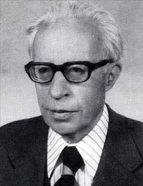

A theory of history: In his diagnosis of contemporary historiographical production, Sílvio Lima was confronted by an epistemological panorama blocked by meta-historical finalism of three kinds: providentialism, philosophies of history, and sociologism. The first, ‘dogmatic backcloth’ of an unverifiable heteronymic anthropology, transcends historicity in nationalist and isolationist versions of national mitogonia; the second, originating in the ‘shipwreck or nullification of confessional faiths’, tends to manifest itself in theodicy or a lay religion, in the Hegelian version even opposed to Naturphilosophie, a mere logical game developed as ‘a syllogism or an equation’ (OC, II, pp. 1257–59). Finally, in subverting Durkheim’s aphorism (which reduces history to a simple microcosm of sociology) by instead subsuming sociology to a microcosm of History, the master of the Theory of History, not neglecting the analogical lesson but against the grain of unfounded comparativist, theological theses, in vogue in historiographical and anthropological discourse from 1880 until the Second World War (from the supporters of ‘modes of production’, to Marx’s dialectical philosophies of history, to the Tylor’s concept of ‘primitivism’; to the apostles of Oliveira Martins’ and Toynbee’s typology of ‘civilizations’) — he clings to an affirmation of the evanescent singularity of the res gestae, the historical events (of which, like Marc Bloch, he had a very wide understanding) and of their unrepeatable singularity which dismisses a reading of some monotonous finality (idem, p. 1245). When looked at properly, historical reality (although absent) still constitutes a sociological reality, but sociologism postulates a radically abusive logic of history, achronic and exogenous, that it does not admit, whether it is seen as abstract forms without content (in the relativist mediation of Simmel), or in the social metaphysics that R. Aron denounces in Durkheim’s sacralization of the Whole (Sílvio Lima, um místico da razão crítica (da incondicionalidade do amor intellectualis), 2009, p. 555).
The task of historiography, based on a particular mode of knowledge, in awakening historical awareness, the autonomous grasping of the historicity of beings, is thus conditioned (and guaranteed) by the historical horizon that every epoch and every historian embraces; but that horizon (Ortega y Gassett) is resting on a mobile topography: it is constantly shifting and expanding, in area (culture, science, information) and depth (diachronic perspective), admitting the study of resistances, mutations and variations (what Sílvio Lima calls metamorphoses) and attempting to grasp the temporality in the becoming of the human condition.
